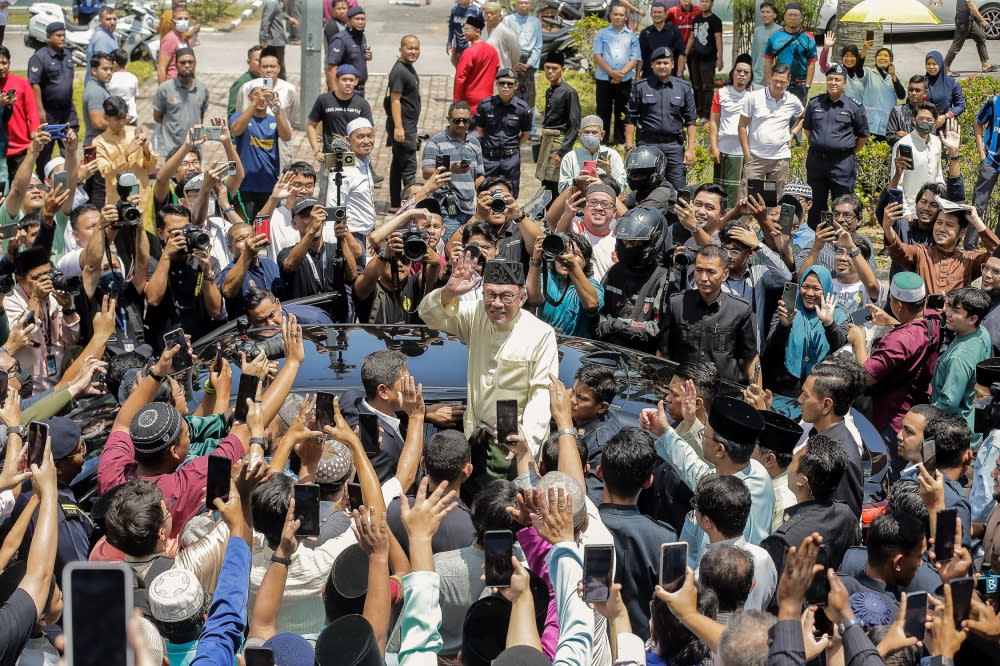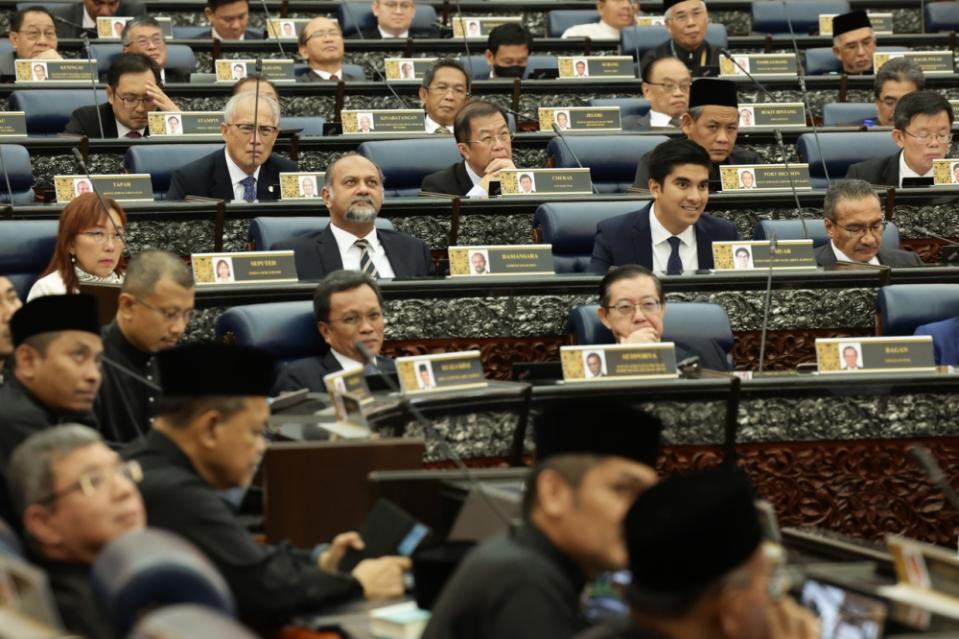Limit PM to serve for only two terms and trim his powers, groups say in 100-day report of Anwar govt

KUALA LUMPUR, March 18 — Malaysia should introduce reforms by placing a two-term limit for the prime minister position, and also reduce the powers concentrated in his hands and redistribute them to others, a collective of 60 civil society groups have proposed.
In their list of recommendations for the Malaysian government to consider, the CSO Platform for Reform suggested reforms to governance leadership in Malaysia, including letting the prime minister have the “sole duty of overseeing ministerial roles and developments of projects nationwide” instead of also holding other portfolios.
“The prime minister should not hold any other portfolio apart from being prime minister,” the collective said in their 28-page report examining the first 100 days of the current unity government.
The collective also said the prime minister's absolute powers should be “decentralised”, as it said too much power is currently centralised within the executive branch of government, specifically the prime minister.
"The powers should instead be distributed among state and local authorities. Similarly, the PM’s powers should also be distributed to Sabah and Sarawak, especially in handling the education framework and funds in the respective states," the collective said.
The report also urged for data in the Prime Minister's Office and the Prime Minister's Department to be disclosed to provide transparency and accountability on the two bodies' levels of power and information, and address the “confusion of power structure” within both bodies.
The report made similar recommendations of two-term limits for those who hold the position of premier, chief minister or menteri besar in the states, as well as for ministers and state executive councillors.
The report said the premier should also only oversee and monitor state-related projects and hold no other portfolio, while ministers and exco members should also hold no other portfolio or government-linked companies (GLC) positions and only ensure all projects and government initiatives are carried out as scheduled.
As for director-generals in government agencies, the groups urged for transparency to ensure appointments to these roles are made based on merit and performance.
“The director-general should be committed to ensuring smooth procedure of government duties at the optimum level. They should not hold any position in any political party and the appointment for a director general should be free from any political influence. They should be focused primarily on their duty to serve the nation, not furthering any political agenda,” the groups said.

The groups proposed for MPs to elect the Speaker, the deputy Speakers and the Dewan Rakyat's secretary. — Bernama pic
Among other things, the report also said the Dewan Rakyat Speaker and deputy Speakers must have a transparent appointment process and should not be by political appointment.
The groups proposed for MPs to instead elect the Speaker, the deputy Speakers and the Dewan Rakyat's secretary.
The election of the Dewan Rakyat speaker should be done when the Dewan Rakyat meets for the first time after a general election, with eligible candidates to be any MP or any non-MPs who meet the same qualifications required to be an MP.
“A candidate for Speaker must be nominated and seconded by at least two MPs other than himself. This nomination process must be conducted at least 14 days before the election of the Speaker. If only one candidate meets these conditions, he is automatically elected Speaker; otherwise, voting by secret ballot is conducted, with the winner decided by a simple majority,” the groups said.
The report also suggested a fixed number of at least 135 to 150 days for Parliamentary sittings, with the schedule to be published at the beginning of the year.
The report said all MPs and state assemblymen should respectively attend all sittings of Parliament and state legislative assemblies “unless debilitated by illness”.
The groups suggested that parliamentary debates by MPs be more constructive and be treated with respect, and urged for data and statistics to be used in parliamentary debates on policies.
There should also be a standard for punishment of contempt of Parliament to ensure the Dewan Rakyat's functionality and prevent MPs from “escaping”, the report suggested.

Among multiple law reforms proposed in the report, the civil society groups said Malaysia should introduce a law on political funding. — Picture by Shafwan Zaidon
Among multiple law reforms proposed in the report, the civil society groups said Malaysia should introduce a law on political funding — which refers to how political parties and politicians raise money for election campaigns, daily operations and other activities.
“It regulates how parties and politicians receive and use money by ensuring disclosure of the source of funds and donations as well as the amounts received.
“This law is essential for holding political parties and politicians accountable, ensuring transparency over funds and preventing misappropriation, bribery, fraud or abuse of power where funding is concerned,” the report said.
The report also proposed the return of elections for local councils, starting with Kuala Lumpur: “There is currently a political will in Kuala Lumpur, hence, it should be the first one to have the local council election.”
The CSO Platform for Reform's 100 Days of the Unity Government Report can be found here.
On March 6, Minister in the Prime Minister's Department (Law and Institutional Reform) Datuk Seri Azalina Othman Said provided updates on several law reforms being worked on, noting that the fine-tuned policy paper on a 10-year tenure limit for the prime minister would be presented to the Cabinet soon for a decision.
Azalina had also said a proposed political funding law will be referred to the relevant parliamentary special select committee — once it is established — to carry out proper engagement with MPs on the Bill.



